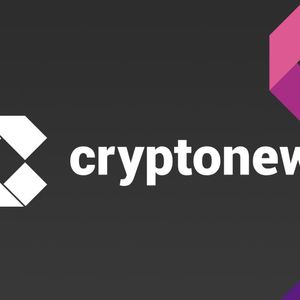Summary During August and September 2025, Digital Asset Treasuries dominated the vehicles through which digital assets have gone mainstream on Wall Street. Five years after MicroStrategy’s first bitcoin purchase - during which time no companies dared follow its lead - hundreds of DATs have emerged. Many investors compare crypto assets - especially L1 tokens - to equities, commodities, or currencies, even though they are more different than similar. By Lorenzo Valente Introduction During August and September 2025, Digital Asset Treasuries (DATs) dominated the vehicles through which digital assets have gone mainstream on Wall Street. It must have been a surprising turn of events to those in the community who assumed that ETFs would continue to play the role that DATs have started to usurp. What happened? Several years ago, MicroStrategy pioneered the bitcoin DAT model, but investors did not understand how to apply it to other digital assets. This paper describes why the DAT phenomenon has been controversial in four sections: DATs description The DAT landscape The rationale for a DAT mNAV premium Risks associated with DATs DATs Description A Digital Asset Treasury ((DAT)) is a company that holds cryptocurrencies, such as bitcoin, ether, or solana (SOL-USD) directly on its balance sheet, to which investors can gain exposure by buying its stock. Unlike SEC-regulated 1 spot Bitcoin (BTC-USD) or Ethereum (ETH-USD) ETFs that hold crypto passively and issue shares backed one-for-one with holdings, DATs are companies - operating businesses that can use leverage, corporate strategy, or financing to manage their holdings. While ETFs provide the regulated exposure germane to public investment instruments, DATs introduce corporate risk and potential upside or downside beyond the underlying asset. Long before the phrase “digital asset treasury” evolved, MicroStrategy developed the first “DAT” for bitcoin. Under Michael Saylor’s leadership, the company deemphasized its enterprise software business to accumulate as much bitcoin as possible. As of September 15, 2025, MicroStrategy (Renamed “Strategy” (MSTR)) had acquired more than 632,000 BTC for $46.5 billion - an average of $73,527 per coin. 2 Today, the company controls more than 3% of the scheduled 21 million bitcoin supply. 3 MicroStrategy accumulated its bitcoin position with various financing strategies. While it began by issuing convertible senior notes, followed by senior secured notes at a 6.125% yield, 4 the real breakthrough was an at-the-market ((ATM)) equity program. Because its stock, MSTR, was trading at a substantial premium to book value, Saylor issued new shares, diluting existing holders but using the proceeds to buy more bitcoin and increase its bitcoin per share. In effect, its shareholders supplied the capital to leverage MicroStrategy’s exposure to bitcoin. The approach has caused quite a bit of debate. Critics denigrate DATs by suggesting, “They’re selling 50 cents for a dollar.” 5 What does that mean? If a DAT were to trade at twice its market net asset value (mNAV), investors would be paying two dollars in equity for every dollar’s worth of bitcoin on the balance sheet. In other words, the premium seems irrational and unsustainable. Thus far, MicroStrategy’s stock has defied that analysis and rewarded shareholders handsomely. Except for a brief dip into discount territory during the bear market between March 2022 and January 2024, MSTR has been priced at a significant premium to mNAV. More importantly, Saylor has weaponized that premium strategically by issuing shares well above book value and increasing MicroStrategy’s bitcoin holdings accretively. As a result, not only has MSTR compounded shareholder exposure to bitcoin, but it also has outperformed a simple buy-and-hold bitcoin strategy since its first bitcoin purchase in August 2020 significantly. 6 The DAT Landscape Five years after MicroStrategy’s first bitcoin purchase - during which time no companies dared follow its lead - hundreds of DATs have emerged. The new vehicles are accumulating ETH, SOL, HYPE, ADA, ENA, BNB, XRP, TRON, DOGE, SUI, AVAX, and many other digital assets. Now the market is beginning to rally around the largest-cap assets, as a handful of well-capitalized DATs are competing to accumulate ETH and SOL. Combined, ETH-focused DATs have acquired 3.74% of the ether supply, 7 and Solana DATs 2.31% of the SOL supply, 8 as shown below. Source: Blockworks as of August 25, 2025. For informational purposes only and should not be considered investment advice or a recommendation to buy, sell, or hold any particular security or cryptocurrency. Past performance is not indicative of future results. In our view, while some DATs may have been created for short-term opportunistic reasons, the winners could become more efficient wrappers than spot ETFs for some digital assets. By exploiting their corporate structures, 9 DATs can deploy leverage, corporate financing, and strategic optionality that ETFs cannot. These advantages will pertain as long as their mNAV premiums prove sustainable, a topic we explore in the following sections. Why Might The mNAV Premium Be Warranted? As an asset manager with significant exposure to crypto, ARK Invest has taken an active interest in the emerging DAT space. Recently, we invested in one of the leading ETH-focused DATs, Bitmine Immersion (BMNR). While approaching DATs cautiously and monitoring their rapid evolution closely, we can understand the reasons that some DATs trade at a an mNAV premium, among them the following: DATs’ Revenue / Staking Yield DATs’ Speed of accumulation / Velocity DATs’ Liquidity and Inexpensive Capital DATs’ Optionality Revenue / Staking Yield Smart contract Layer 1 blockchain protocols (L1s) 10 - Ethereum, in particular - offer native yields through staking, which rewards participants for securing the network. In the digital asset ecosystem, that yield is effectively the risk-free rate, as it is generated within the protocol and does not involve counterparty risk. In contrast, spot ETFs in the US do not allow staking for yield on the underlying asset. Because of Ethereum’s design, even if regulators were to change their position, ETFs probably would be able to stake a limited percentage of their holdings - perhaps less than 50% - as the network enforces “churn limits” that restrict how many validators can enter or exit during each epoch. 11 Essential for security, the limits prevent malicious actors from spinning up or shutting down large numbers of validators at once, ensuring that any changes do not overwhelm consensus or state management. As a result, staking or unstaking ETH can take up to two weeks. While ETFs could use liquid staking protocols 12 and tokens to circumvent the limits, compliance, liquidity, and centralization risks are likely to prevent ETFs from staking significant portions of their holdings. In contrast, DATs can benefit from significant optionality. Typical DATs are extremely lean organizations, often run by very small teams that generate outsized revenue. At a $10 billion market cap, if all ETH is staked, Bitmine Immersion, for example, generates ~$300 million of free cash flow annually, 13 capital that can be redeployed into mergers and acquisitions (M&A), token purchases, on-chain opportunities, or shareholder distributions. Speed Of Accumulation / Velocity Justifying DATs premium-to-book value are the speed of asset accumulation and the growth in cryptoassets per share. DATs can grow cryptoassets per share more quickly than the price appreciation of the underlying asset and, by extension, accelerate revenue growth by staking yield. Consider Bitmine. On July 13, the company held 163,142 ETH across roughly 56 million fully diluted shares. 14 At $2,914 per ETH, ETH per share was 0.0029, or $8.45. Just 31 days later, our estimates suggest that Bitmine’s holdings and shares had expanded to 1.15 million ETH and 173 million of fully diluted shares, respectively. 15 At $4,700 per ETH, ETH per share was 0.0066 ETH, or $32.43. In one month, the price of ETH rose about 60%, and Bitmine’s ETH/share increased by 130%. In other words, Bitmine’s ability to arbitrage its mNAV premium through at-the-market equity ((ATM)) issuance and accretive purchases added significantly more value than holding ETH directly. Of course, this dynamic will persist only with an mNAV premium and ATMs deployed accretively. Should the premium narrow or drop to a discount, DATs would have to rely on other capital-market tools, like liquidating a portion of their underlying token holdings to repurchase shares. The Shapley Value decomposition method breaks down the drivers of Bitmine’s (BMNR’s) stock performance, attributing the changes to three variables: the ETH price, growth in ETH per share, and shifts in the mNAV premium or discount, as shown below. As of August 25, ETH/share had been the biggest contributor to BMNR’s price and shareholder return. Source: ARK Investment Management LLC, 2025. Note: This chart is based on the Shapley Average Value, which uses only public data (e.g., stock price, mNAV, eth AUM, price of ETH, FDV shares). Data as of August 25, 2025. For informational purposes only and should not be considered investment advice or a recommendation to buy, sell, or hold any particular security or cryptocurrency. Past performance is not indicative of future results. Liquidity And Inexpensive Capital Liquidity is the main reason a DAT deserves a premium. At-the-market equity programs (ATMs) and convertible bonds work only if an equity is liquid. An ATM relies on meaningful daily turnover and a DAT’s ability to absorb steady share issuance without depressing the price. The same is true for convertibles: investors are buying a bond plus the option to convert into equity. The option has value only if the equity is liquid enough to be sold or hedged efficiently. Without liquidity, the instrument will not attract serious investors and/or will become prohibitively expensive for the issuer. Scale also matters because debt markets typically serve large companies. Investment banks and institutional lenders depend on demand in the secondary market, which is a function of market cap and float/liquidity. In practice, most broadly syndicated debt deals and institutional convertible offerings are accessible only to companies with market caps greater than ~$1–2 billion. Below that threshold, the cost of capital rises sharply, and financing options often are limited to bespoke or venture-style credit facilities. MicroStrategy, for example, was able to issue multiple rounds of convertibles totaling billions of dollars because its equity was liquid and its market cap was in the tens of billions at the time. Preferred share issuance illustrates the same point. Structured equity deals like those MicroStrategy has pursued require both balance-sheet heft and secondary liquidity to attract institutional investors. Preferred share buyers must believe that they will be able to exit or hedge positions. Illiquid DATs have no access to this financing channel. In other words, liquidity lowers the cost of capital. To compensate for illiquidity, investors demand higher returns, so illiquid DATs have to pay up in one or more ways: deeper discounts on equity issuance, higher coupon rates on debt, or more onerous covenants. In contrast, a liquid DAT can raise capital less expensively 16 to accumulate BTC or ETH, creating a flywheel effect that reinforces the premium. Optionality Many investors compare crypto assets - especially L1 tokens - to equities, commodities, or currencies, even though they are more different than similar. Digital Asset Treasuries (DATs) highlight this distinction and demonstrate how ETF wrappers can be an inefficient way to gain exposure to L1s. The DAT corporate structure offers optionality that investors often value at a premium to book value. Large DATs can acquire tokens at a discount in distressed circumstances, such as the ongoing FTX bankruptcy sales, or through the purchase of other DATs trading below mNAV. To illustrate, with a $10 billion market cap, Bitmine Immersion could issue just 2–3% of its stock and acquire an ETH-focused DAT worth $200 million at a discount, an accretive acquisition. Beyond such mergers and acquisitions (M&A), ecosystems like Solana and Ethereum offer other opportunities. Because those networks support tens of billions of dollars in liquidity and applications, a sufficiently scaled DAT can monetize by securing or providing liquidity on-chain. Indeed, protocols might offer incentives to attract large, balance-sheet-heavy participants into their ecosystems. Another arbitrage opportunity involves the spread between traditional and on-chain interest rates which, at times, has exceeded 500 basis points (bp), or 5%. 17 In a low-rate environment, DATs could borrow USD in traditional financial markets at a low cost and deploy the funds in on-chain lending pools at materially higher yields. Today, stablecoin pools like sUSDS, sUSDe, or SyrupUSDC offer annualized yields of ~7%, roughly 300bp (~3%) higher than Treasury yields, giving DATs the opportunity to capture incremental revenue streams beyond simple token appreciation. Risks While DATs offer new ways to gain exposure to cryptoassets, they also introduce significant risks that investors must weigh carefully. The first is dependence on market premiums. The DAT model - particularly the growth in crypto per share - relies on stocks trading at a premium to mNAV. When the premium compresses, a DAT’s ability to issue accretive equity diminishes and can disappear, forcing them to slow purchases or to liquidate tokens and repurchase shares. Second, liquidity can cut both ways. While liquid stocks enable access to inexpensive capital, they also can become the source of illiquidity during market downdrafts. In an extended downturn, DATs could enter a negative feedback loop: collapsing share prices, higher cost of capital, and potential redemptions that force token sales. Third, regulatory uncertainty looms large. Unlike ETFs, DATs operate in a gray area that could invite scrutiny around accounting treatment, disclosures, and other regulatory questions which apply more to investment funds than to operating companies. Regulatory intervention could impair access to capital markets or limit optionality. Fourth, governance and operational risks could be underappreciated. Many DATs are managed by small teams overseeing multi-billion-dollar treasuries. Weak controls, poor risk management, or misaligned incentives can erode value very quickly. In the worst case, some DATs could evolve into reckless on-chain hedge funds in disguise - chasing yield, levering up balance sheets, and allocating capital with limited transparency, creating the risk of hidden exposures and even bankruptcy. Conclusion The rise of Digital Asset Treasuries offers a new way for investors to gain exposure to crypto assets. What began with MicroStrategy’s seemingly idiosyncratic bet has evolved into a broader phenomenon, with DATs proliferating across Ethereum, Solana, and other leading Layer 1 blockchain protocols. While critics dismiss the model as “selling fifty cents for a dollar,” the reality is more nuanced. The DAT corporate structure offers unique potential advantages - ones that ETFs cannot match - that justify their premiums to book value: the ability to increase ETH or SOL per share more quickly than the price appreciation of the underlying asset; the liquidity and scale to access inexpensive capital across the capital stack; and the optionality to pursue M&A, token purchases, and on-chain opportunities. Unlike ETFs, DATs are not passive wrappers for digital assets. They are dynamic capital-market vehicles with the potential to magnify exposure, capture protocol yields, and allocate capital. For some assets, they may prove not only to be more sustainable but also to be more efficient than ETFs. Far from a passing arbitrage, DATs could become enduring institutions at the intersection of the traditional financial markets and the new world of digital assets. DISCLOSURE: Digital Asset Risk Digital assets, often referred to as cryptocurrencies, such as bitcoin and ether are relatively new investments, which have unique and substantial risks and which may be more volatile than other types of investments. Digital assets operate without central authority or banks and are not backed by any government. Even indirectly, digital assets may experience very high volatility. Digital assets are not legal tender. Federal, state or foreign governments could restrict the use and exchange of digital assets. Digital asset exchanges could stop operating or permanently shut down due to fraud, technical glitches, hackers or malware. Digital assets, like bitcoin and ether, are subject to rapid price swings, including as a result of actions and statements by influencers and the media, changes in the supply of and demand for the digital asset, and other factors. There is no assurance that a digital asset will maintain its value over the long term. 1 Cryptocurrencies are classified as commodities rather than securities. As such, spot Bitcoin and Ethereum ETFs are structured as commodity-based exchange-traded products (ETPs) registered under the Securities Act of 1933 (“33 Act”) rather than traditional investment companies that are registered under the Investment Company Act of 1940 (“40 Act”) like most other ETFs. Therefore, although the spot Bitcoin and Ethereum ETFs are regulated by the Securities and Exchange Commission (SEC) to some degree, they do not offer the same investor protections as traditional investment companies that are subject to the regulations set forth by the 40 Act. 2 Based on data from Saylor, M. 2025. “Strategy has acquired 525 BTC for ~$60.2 million at ~$114,562 per bitcoin…” X. 3 Ibid. 4 See MicroStrategy. 2021. “MicroStrategy Completes $500 Million Offering of 6.125% Senior Secured Notes Due 2028 with Bitcoin Use of Proceeds.” 5 Carter, N. 2025. “in the end its going to be very funny…” X. 6 MSTR stock has outperformed the buy and hold strategy from the first bitcoin purchase of the company on August 11, 2020. Data as of October 22, 2025. MSTR stock went up from 14 usd to 300 usd (20.8x), versus bitcoin, which rose from 11,410 USD to 110,000 USD (9.6x). MSTR stock’s outperformance of BTC price is attributable to the accretive usage of the share issuance to buy BTC. 7 Based on data from Blockworks as of August 25, 2025. 8 Based on data from Blockworks as of August 25, 2025. 9 A Digital Asset Treasury can use its corporate structure to exploit leverage and financing in ways an ETF cannot. By holding crypto directly on its balance sheet, a DAT can borrow against those reserves through secured loans or convertible bonds, effectively levering its exposure. It can also issue new shares if its stock trades at a premium to the value of its underlying assets, turning that premium into additional capital to buy more crypto. ETFs, by contrast, are constrained to issuing and redeeming shares at net asset value and cannot borrow against their holdings, which limits them to passively tracking the asset. 10 Colloquially, “Layer 1 blockchain”—or “L1”—refers to the base protocol of a blockchain network, which is responsible for essential functions like transaction processing, consensus mechanisms, and data storage on its own chain. 11 As used within the crypto community, an “epoch” is a unit of time used primarily in the proof-of-stake (PoS) consensus system to organize validator activity and block finalization. 12 Liquid staking protocols are platforms that enable users to stake their cryptocurrency holdings on a Proof-of-Stake (PoS) blockchain while retaining liquidity via a yield-bearing token that rebases. 13 Based on data from UltraSound Money, data as of August 25, 2025. Our calculation assumes that Ethereum yield is approximately 3%, resulting in a total of $300 million. 14 Based on data from Deepnewz. 2025. “Bitmine ( BMNR ) Raises $250 Million, Sells 55.56M Shares, Stock Surges 400% as Tom Lee Launches "MicroStrategy of Ethereum" Treasury.” 15 Based on public data regarding prices of stock, ETH, and mNAV, for example, as of August 25, 2025. 16 In finance, preferreds are hybrid securities—a class of stock that blends features of both stocks and bonds, offering fixed-dividend payouts and preferential claims on assets in bankruptcy or liquidation over common stockholders, but with lower priority than bondholders. Also known as preferred stock, they usually pay higher yields than common stock to compensate for their intermediate risk level and lack of voting rights. 17 Note: A basis point ((BP)) is equal to 0.01%, or one one-hundredth of a percentage point. Data based on Pokorny, Z. 2025. “The State of Crypto Lending.” Galaxy. Disclosures ARK's statements are not an endorsement of any company or a recommendation to buy, sell or hold any security. For a list of all purchases and sales made by ARK for client accounts during the past year that could be considered by the SEC as recommendations, click here . It should not be assumed that recommendations made in the future will be profitable or will equal the performance of the securities in this list. For full disclosures, click here . ©2021-2026, ARK Investment Management LLC (“ARK” ® ”ARK Invest”). All content is original and has been researched and produced by ARK unless otherwise stated. No part of ARK’s original content may be reproduced in any form, or referred to in any other publication, without the express written permission of ARK. The content is for informational and educational purposes only and should not be construed as investment advice or an offer or solicitation in respect to any products or services for any persons who are prohibited from receiving such information under the laws applicable to their place of citizenship, domicile or residence. Certain of the statements contained on this website may be statements of future expectations and other forward-looking statements that are based on ARK's current views and assumptions, and involve known and unknown risks and uncertainties that could cause actual results, performance or events to differ materially from those expressed or implied in such statements. All content is subject to change without notice. All statements made regarding companies or securities or other financial information on this site or any sites relating to ARK are strictly beliefs and points of view held by ARK or the third party making such statement and are not endorsements by ARK of any company or security or recommendations by ARK to buy, sell or hold any security. The content presented does not constitute investment advice, should not be used as the basis for any investment decision, and does not purport to provide any legal, tax or accounting advice. Please remember that there are inherent risks involved with investing in the markets, and your investments may be worth more or less than your initial investment upon redemption. There is no guarantee that ARK's objectives will be achieved. Further, there is no assurance that any strategies, methods, sectors, or any investment programs herein were or will prove to be profitable, or that any investment recommendations or decisions we make in the future will be profitable for any investor or client. Professional money management is not suitable for all investors. For full disclosures, please go to our Terms & Conditions page. The Adviser did not pay a fee to be considered for or granted the awards. The Adviser did not pay any fee to the grantor of the awards for the right to promote the Adviser's receipt of the awards nor was the Adviser required to be a member of an organization to be eligible for the awards. For full Award Disclosure please go to our Terms & Conditions page. Past performance is not indicative of future performance. Original Post Editor's Note: The summary bullets for this article were chosen by Seeking Alpha editors.
















